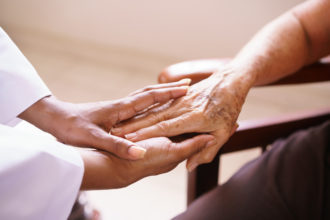Signs of Nursing Home Neglect
 Although you care deeply about your elderly loved ones, there may come a point in time when you are no longer able to provide adequate care and attention. When this happens, you may need to consider moving your loved one to a nursing home or assisted living facility. While this can be a great way for the elderly to receive excellent care while thriving within a community of his or her peers, you will likely have some concerns when making this transition. After all, you want to ensure that your loved one is in the best of hands.
Although you care deeply about your elderly loved ones, there may come a point in time when you are no longer able to provide adequate care and attention. When this happens, you may need to consider moving your loved one to a nursing home or assisted living facility. While this can be a great way for the elderly to receive excellent care while thriving within a community of his or her peers, you will likely have some concerns when making this transition. After all, you want to ensure that your loved one is in the best of hands.
Unfortunately, nursing home neglect is still a problem in today’s world. No matter how busy a facility is or how many residents it is tending to, there is never an excuse for the staff to fail to maintain certain standards and neglect the well-being of the elderly. But how can you tell if your loved one is being neglected in a healthcare setting? Here are six red flags to look out for:
1. Reduced Personal Hygiene
Nursing care facility staff is responsible for ensuring that residents are able to maintain basic personal hygiene. If an elderly person is not able to handle these tasks on his or her own, the nursing staff should aid with the process of bathing, getting dressed, brushing their teeth and hair, and more. If your loved one suddenly experiences a reduction in personal hygiene, it may be because he or she isn’t getting the care and attention they deserve.
2. Unsafe/Unsanitary Living Conditions
Nursing homes and assisted living facilities are required to meet high standards for maintaining a safe and sanitary living environment at all times. This means that your loved one should have clean clothes and clean bedding, and the facility’s bathroom and kitchen facilities should be sanitary. Neglecting these duties is never acceptable.
3. Malnutrition
If an elderly person is neglected, it could result in malnutrition or dehydration. Whether it is the result of deliberately withholding food or water from an individual, or due to oversight, poor nutrition can create physical complications that cause your loved one’s health to rapidly deteriorate.
4. Loss of Mobility
Care facilities should spend time helping residents to move around, exercise, and stay as active as they can. If the staff is neglectful or the facility is understaffed, your loved one may be left in bed for extended periods of time. Without routine movement, this could result in decreased mobility and bedsores.
5. Frequent Injuries
Bruises, broken bones, or head injuries could be a sign that your loved one is being neglected. Elderly persons who don’t regularly receive help in handling their daily tasks will attempt to do things for themselves. When this happens, they may sustain injuries that could and should have been prevented with the proper level of care.
6. Psychological Issues or Distress
Changes in personality or signs of depression may be due to a whole lot more than simply adjusting to a new nursing home environment. If your loved one seems to be growing distant, displays any signs of anxiety or fear around his or her caregivers, or seems reluctant to talk about his or her living conditions, it’s serious cause for concern. Never take emotional changes in your loved one lightly, as they can indicate ongoing neglect.
Take Action When Needed
If you suspect that your loved one is being neglected in a care facility setting, it’s your duty to take action. Be sure to regularly document any signs of neglect and take pictures where applicable. Bring any information or evidence to a personal injury attorney like Mintz Law Firm, who is experienced in handling cases related to nursing home neglect and elder abuse. Please don’t hesitate to get started on your case. Call us for a free evaluation today.
